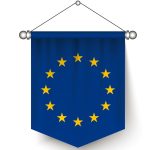The textile industry, fourth most polluting sector, is at the heart of the fight against climate change. To curb its environmental impact, the European Commission deploys new regulations in favor of a circular and sustainable industry. The introduction of the digital product passport constitutes one of the key tools of European environmental policy. Explanation and commentary by Helene Behrenfeldt, industry strategy director fashion chez Infor, global market leader in enterprise cloud industry software.

How the digital product passport works
The DPP system is still under development, but it should rely on a combination of technologies such as scannable QR Codes, RFID tags and blockchain, to create a unique and secure digital identity for each product. Consumers will be able to scan the QR Code or RFID tag, affixed to the product, for detailed information on the entire life cycle of the product concerned : origin of materials, recycling options, country of manufacture of the product… Blockchain technology will allow this life cycle data to be collected in a secure manner, economical and inviolable, using distributed ledger technology (DLT). However, will digital passports be harmonized from one country to another? ? This is a crucial issue for multinational companies, whose sites and suppliers are located throughout the world. For fashion industry manufacturers, significant investments will be necessary, And this, at all levels of the value chain, including for employee training and the acquisition of new IT systems.
The technological foundations
To meet the requirements of the DPP, businesses will need to implement a robust system capable of streamlining and standardizing the collection of data from multiple, decentralized sources. This system must extract the relevant information and structure it in a format compatible with the DPP passport. In the first place, this system must collect certificates attesting to the conformity of the materials and articles concerned throughout their supply chain : For example, the origin of the cotton used for a shirt, how and where it was spun and dyed, its journey from production to storage and, finally, its physical or virtual point of sale. The system will also need to capture various operational aspects, such as production and purchasing volumes, as well as dormant stocks. The aim is to create a single source of reliable information covering all aspects relevant to the DPP.
The cloud platform solution
Cloud platforms constitute a reliable solution to meet these challenges. They provide optimal flexibility in managing and synchronizing data between multiple systems, allowing regular updates based on evolving regulatory requirements. For companies that use separate systems for production and management, the interconnection of these systems will be essential to guarantee the smooth flow of data, by making it possible to extract detailed information on the composition of materials, reaching a maximum level of granularity at the level of suppliers and subcontractors. Integration with platforms specialized in the analysis and validation of environmental data is also very useful. The latest data analysis systems, notably integrating data lakehouse technology, offer businesses new features. These tools enable non-technical experts to extract relevant information from massive volumes of unstructured data, without having to first organize or structure them. As part of digital product passports, they provide the functionality required to ensure environmental reporting and compliance.
A decisive breakthrough
Far from being limited to administrative constraints, the introduction of digital passports for DPP products opens up prospects for the textile and fashion industry. The different actors and stakeholders who choose to proactively embrace this evolution will be able to reap many tangible benefits.. On the commercial level, adoption of DPPs will promote increased consumer trust in brands, thus strengthening their reputation. Businesses will benefit from better knowledge of their customers. This increased transparency will also make it possible to better develop new economic models based on the principles of the circular economy.. Companies that manage to strike a balance between minimizing environmental impact and operational excellence will be richly rewarded with substantial commercial gains..












